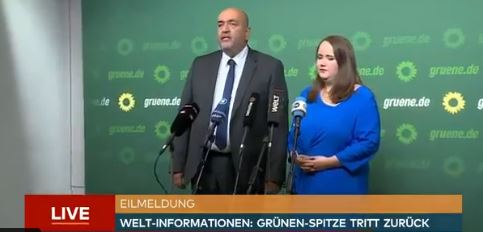The leadership of Germany’s Greens party has stepped down following significant losses in recent local elections across the eastern states of Saxony, Thuringia, and Brandenburg earlier this month.
Ricarda Lang, one of the two co-leaders, announced on Wednesday that “new faces are needed to lead the party out of this crisis.” Her counterpart, Omid Nouripour, concurred, stating:
“We have come to the conclusion that we need a new start.”
Nouripour further elaborated on the situation:
“The results of Sunday’s elections in Brandenburg are proof of our party’s deepest crisis in a decade.”
Lang emphasized the need for accountability within the party, saying,
“The goal now is not to stick to a chair; the goal now is to take responsibility, and we take responsibility by making a new start possible.”
She noted that the current executive board would remain active until November when a new leadership vote is scheduled at the party congress.
In the crucial election held in Brandenburg on Sunday, the Greens secured only 4% of the vote, falling short of the 5% threshold required to gain seats in the parliament. This result signifies an almost seven-point decline compared to the previous state election five years prior. Earlier this year, the party experienced substantial losses in the European Parliament elections and failed to win any seats in Thuringia’s state parliament in September. In Saxony, the Greens barely managed to re-enter the state legislature with just 5.1% of the vote.
National opinion polls reflect a broader decline in support, with the Greens currently at 10%—five points below their performance in the last federal election in 2021. Surveys suggest that voters are shifting their focus from the party’s central platform of combating climate change to issues like immigration and security.
German Chancellor Olaf Scholz, whose Social Democratic Party (SPD) forms part of the ‘traffic light coalition’ alongside the Greens, commented on the leadership changes. He stated that the reshuffling at the top of the Greens is not anticipated to affect the coalition government’s functioning.

















